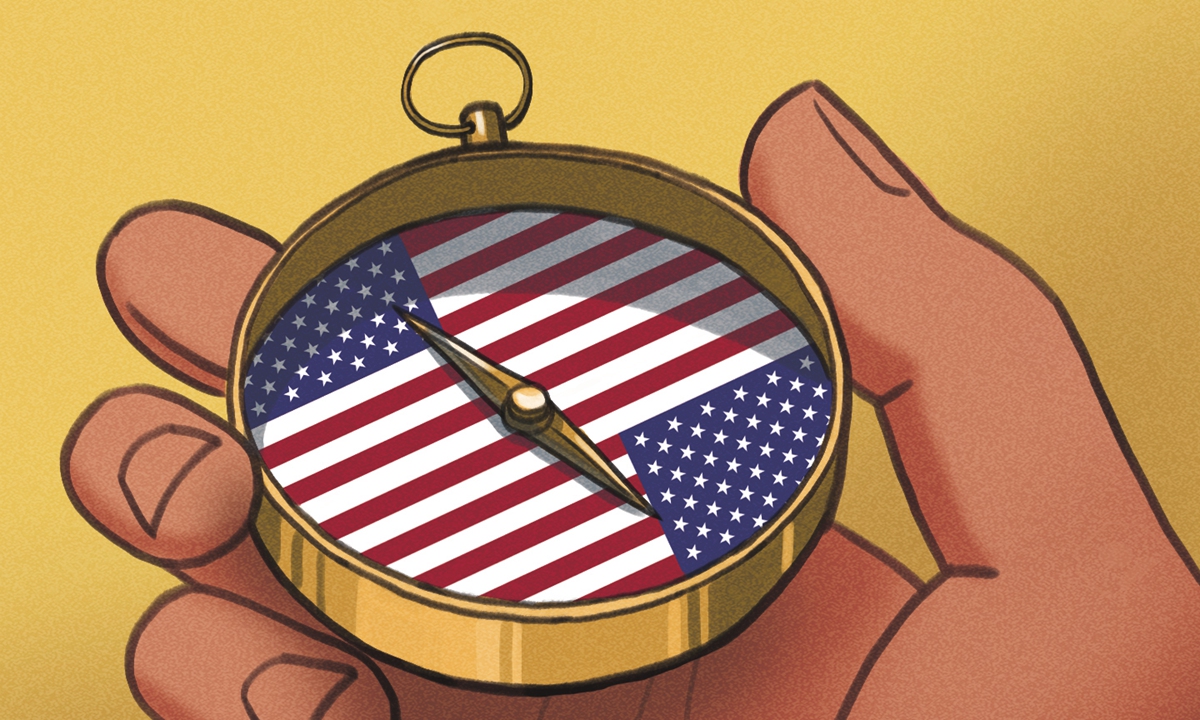ASPI ignores real coercive force is from US
By Chen Hong Source: Global Times Published: 2020/9/8 22:54:10

Illustration: Liu Rui/GT
The Australian Strategic Policy Institute (ASPI), an Australian think tank, recently published a report accusing China of "coercive diplomacy," at a time when the US is taking the lead to conduct an all-around crusade in the most belligerent and frenzied way with its anti-China allies to try to force China into political, economic and cultural submission and compliance.
When China's national sovereignty, territorial integrity and security are being threatened; when the Chinese economic interests and rightful development are being thwarted and impaired; when China's system of governance is being venomously smeared, any of China's attempts to defy this is also met with coercive attacks.
In fact, in the recent years, Australia's Liberal-National Coalition government has doggedly persisted on Washington's coattails to politicize and weaponize pure business initiatives. These include Huawei's 5G upgrade proposal and Chinese dairy company Mengniu's acquisition bid. Meanwhile, China has never used economic leverage as a means to achieve political gains. As a committed member of the World Trade Organization (WTO), China adheres to the rules and regulations of the WTO with respect to trade disputes with other countries. Nevertheless, when China tries to safeguard its own business interests by carrying out anti-dumping and anti-subsidy measures on certain imports from Australia, those with ulterior motives (such as the authors of the ASPI report) scheme to slander such lawful acts as economic coercion with hidden agendas.
The ASPI report said, "China's consumer spending overtook the US's for the first time in 2019." However, it argues China is "encouraging its citizens to engage in nationalistic popular boycott campaigns" against foreign governments and businesses. Apparently in the minds of those think tanks in Canberra, Chinese citizens are simply submissive people without any independent will or judgment.
It is political common sense that public sentiments are important factors, which contribute to the making of policies and decisions. When Chinese business people, investors and masses of consumers detect an unfavorable commercial environment, they naturally choose to avoid any potential business hazards in Australia.
What governments such as Canberra need to consider is how to create constructive and conducive conditions for international businesses and consumption - and not play more underhanded, vicious blame games.
It is an open secret that ASPI receives funding from the Australian Department of Defense and the Australian intelligence organization - Australian Signals Directorate. It is also financed by foreign arms dealers such as Lockheed Martin, Northrop Grumman, and Thales. It is not surprising that a McCarthyist outlook is serving to guide its institutional policies. With such shrill outcries in Australia against the so-called foreign interference, why does ASPI turn such a blind eye to the brazen influence from those American and European arsenal stakeholders?
The ASPI report correctly acknowledges the fact that the China-Australia trade reached an increase of 4 percent in August 2020. The report pointed out that China has not imposed any sanction on wool, which is one of the most important and valuable Australian exports to China, but imposed tariffs on barley and investigated some Australian wines. It is therefore illogical to accuse China of waging an economic war on Australia.
In order to justify its blatant intimidation and oppression, Washington has been colluding with institutes in Australia and elsewhere to create a demonized image of China as a threatening force. A modern theory of psychology, secondary victimization, attests to the fact that a miscreant often resorts to censuring the victim with its malevolent attempts to justify its underhandedness.
China never opted to a confrontation with the US and its allies. But we resolutely refuse to capitulate in face of provocations and coercion. Though we never attempt to be wolves on the international arena, no one should take us as lamb on their chopping boards.
The author is a professor and director of the Australian Studies Centre, East China Normal University. opinion@globaltimes.com.cn
Posted in: ASIAN REVIEW